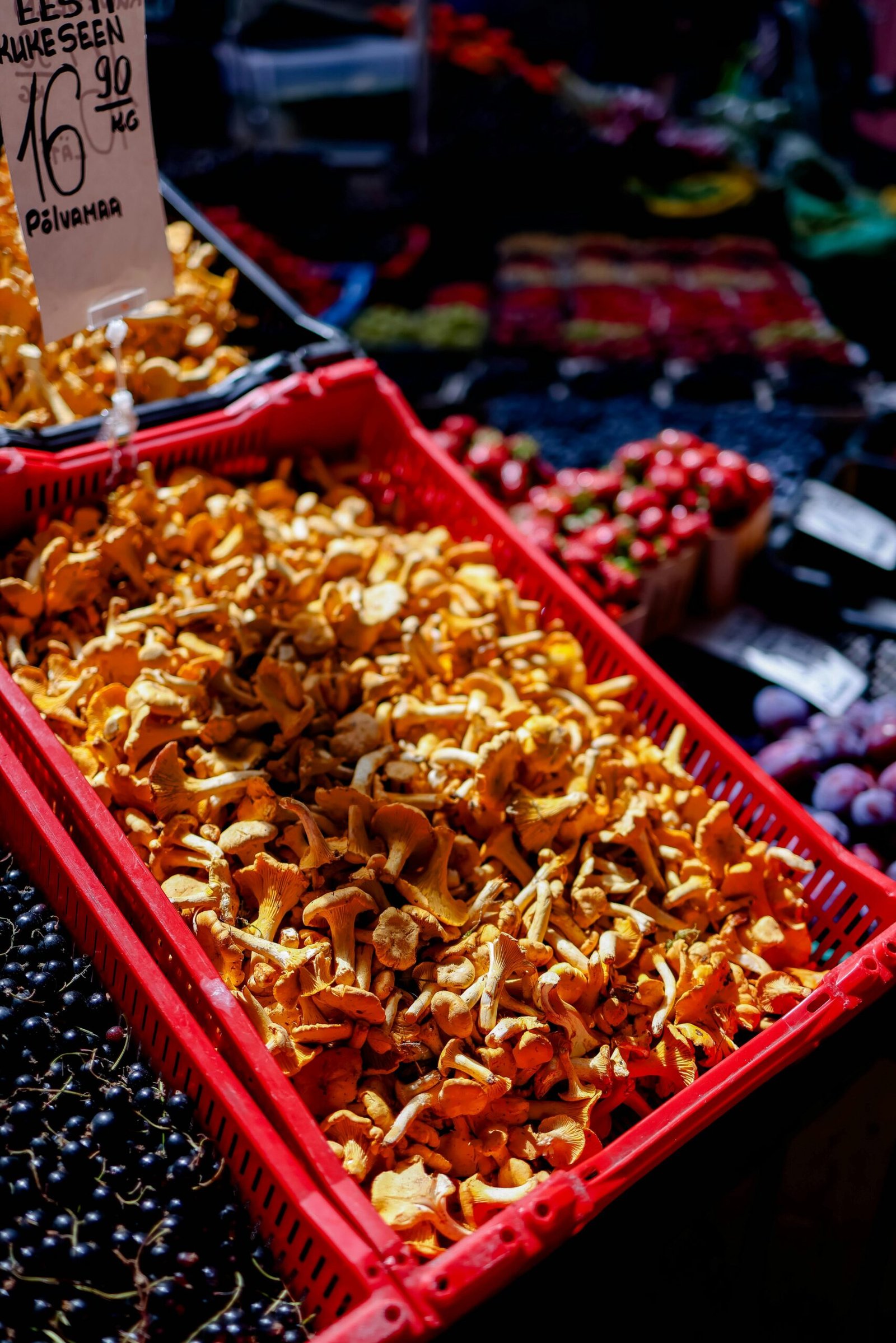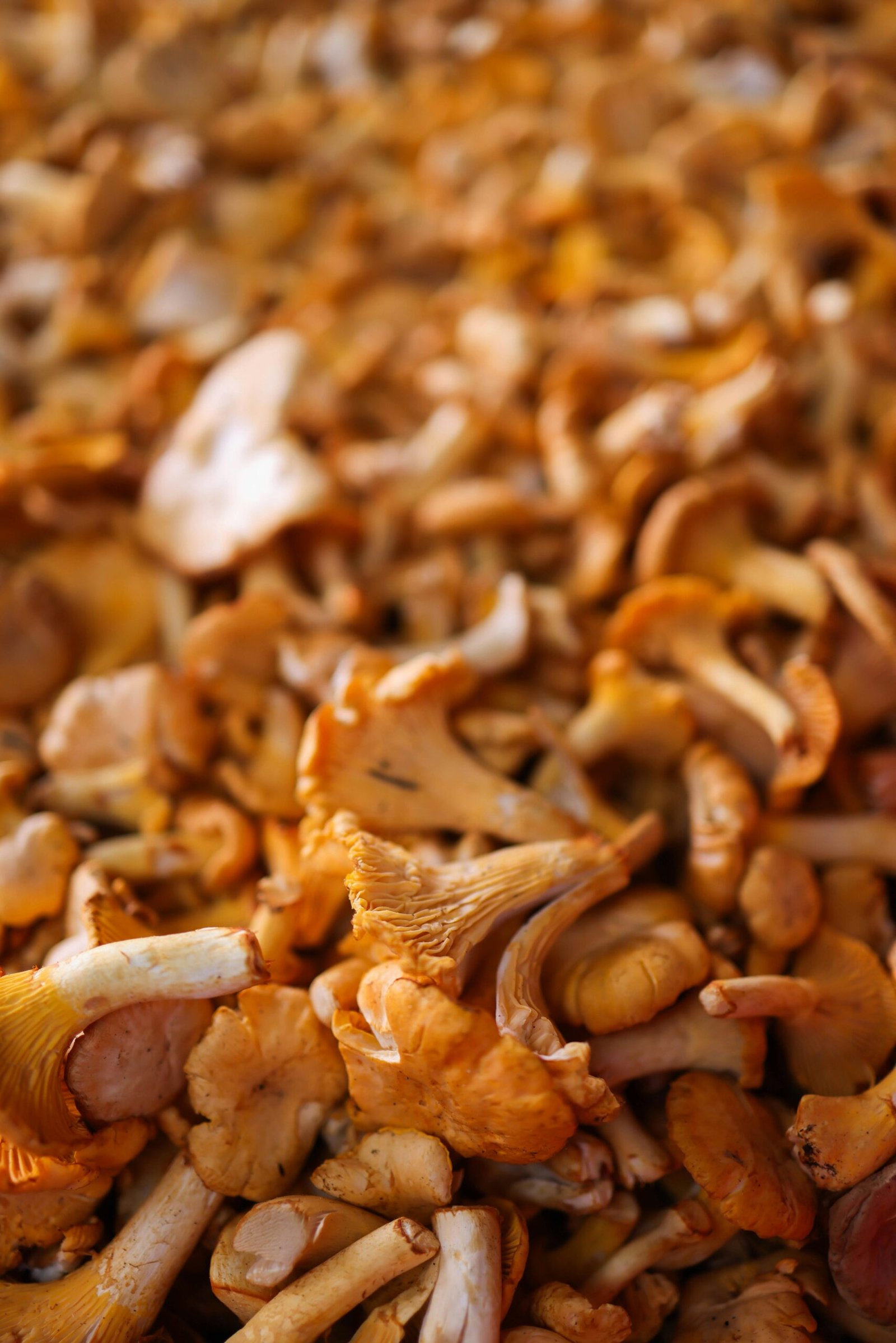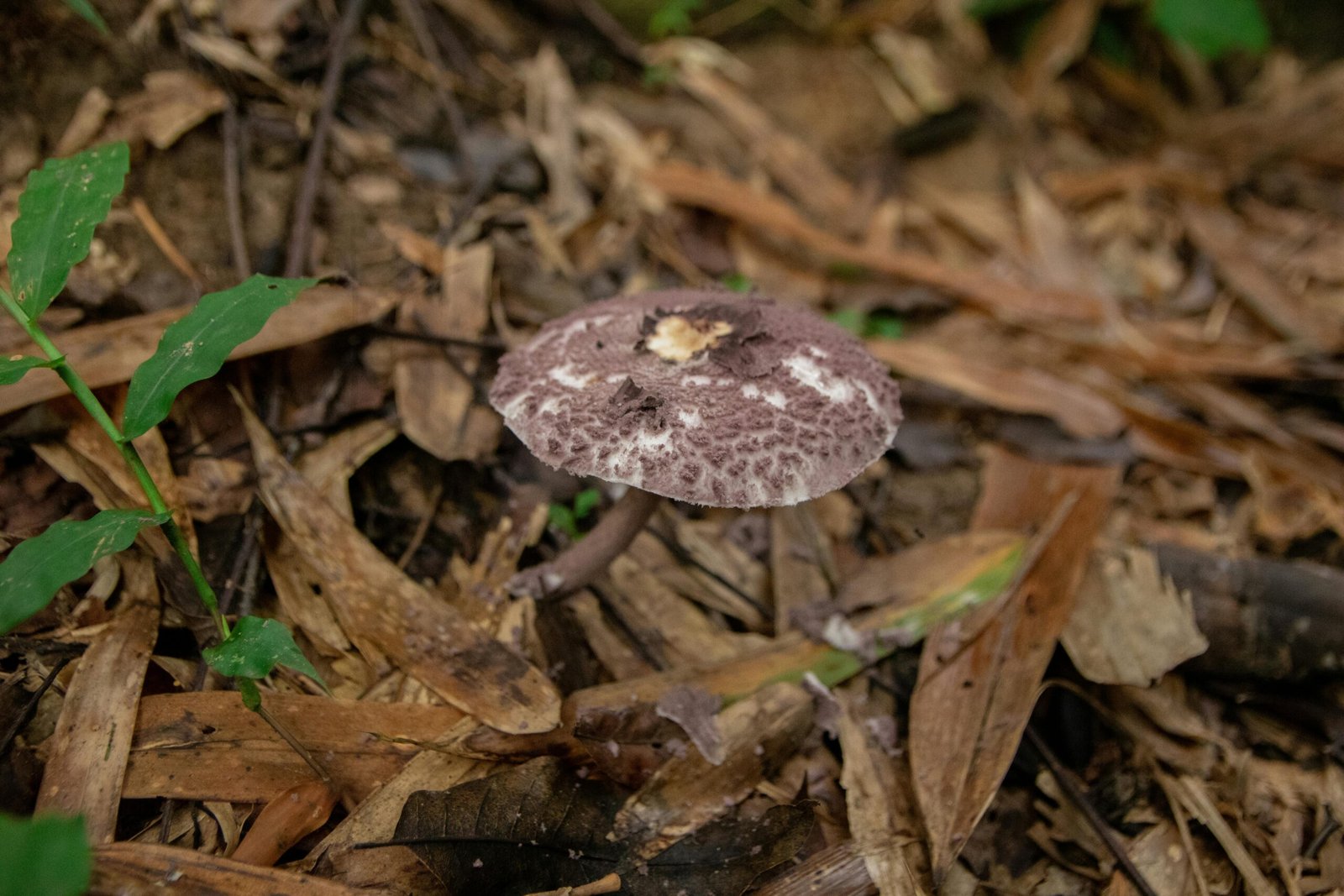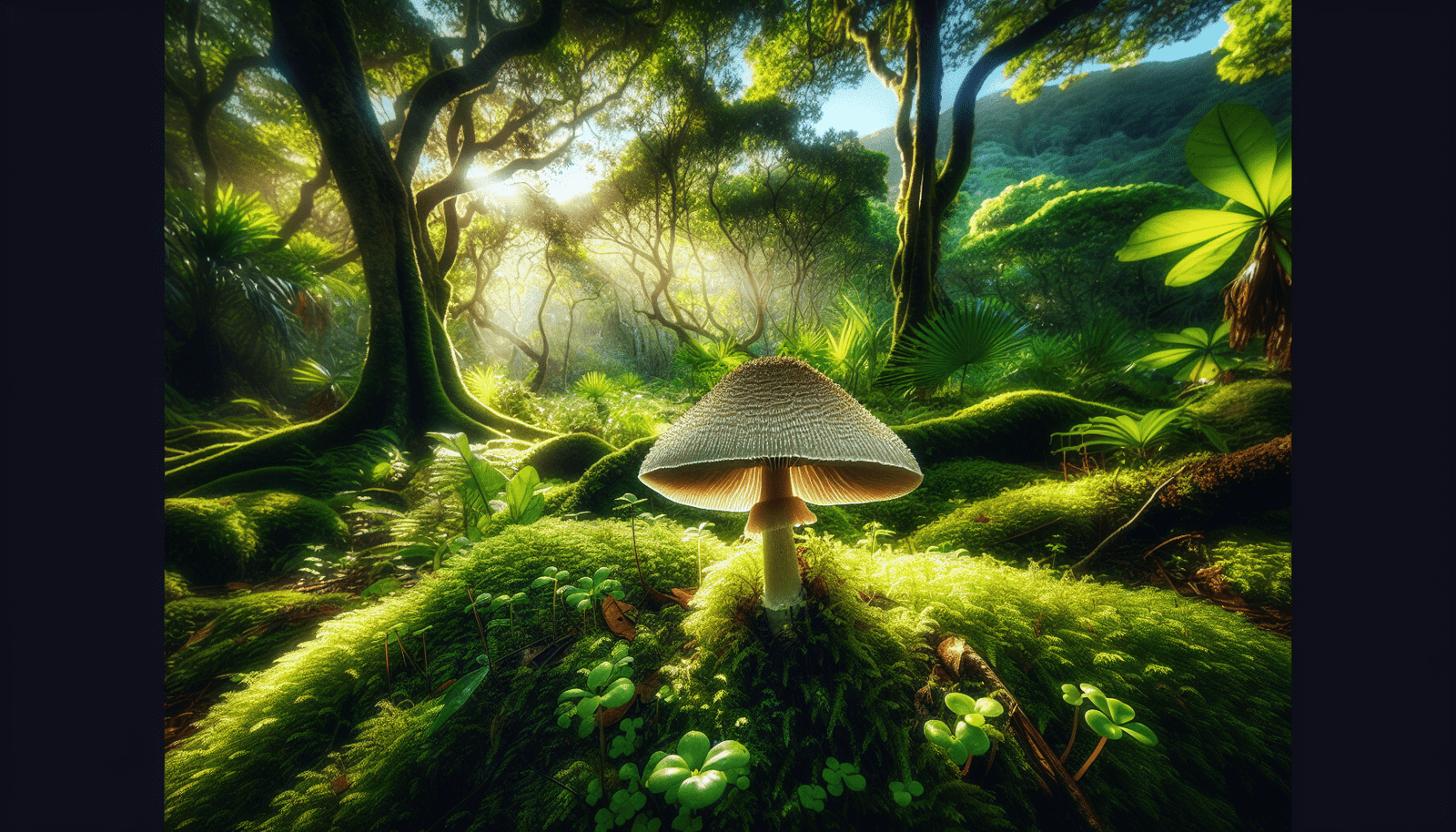Have you ever wondered what unique and fascinating fungi can be found in one of the world’s most beautiful and ecologically diverse places? Hawaii, with its lush rainforests, volcanic soils, and unique climate, offers an enchanting world for mushroom foragers.
Island Fungi: A Guide To Foraging In Hawaii
Exploring the island’s fungi is an adventure that brings you closer to nature, offering medicinal, culinary, and ecological insights. Let’s embark on this journey to uncover the treasures hidden in Hawaii’s diverse landscapes.
Regional Spotlights and Seasonal Guides
Hawaii’s distinct regions provide different habitats for a variety of mushroom species. The best times for foraging can differ based on where you are in the island chain as well as the prevailing climate conditions.
Ideal Foraging Locations in Hawaii
Oahu: Known for its lush rainforests and volcanic mountain ranges, this island is a haven for mushroom enthusiasts. Certain areas like Manoa Valley and the Ko’olau Mountain Range are known for their rich biodiversity.
Maui: The Hana Highway and the Haleakalā National Park are excellent spots. The moist, high-altitude regions provide perfect conditions for numerous fungal species.
Kauai: The “Garden Isle” hosts an array of mushrooms, particularly in the Alakai Wilderness Preserve and Waimea Canyon.
| Island | Key Foraging Locations | Best Seasons |
|---|---|---|
| Oahu | Manoa Valley, Ko’olau Mountain Range | Year-round, best after heavy rains |
| Maui | Hana Highway, Haleakalā National Park | Most prolific in the wetter months |
| Kauai | Alakai Wilderness Preserve, Waimea Canyon | Consistent throughout the year, peaks post-rainfall |
Safety and Ethics of Foraging
Safety and ethics are vital aspects of responsible foraging. Knowing how to identify and harvest mushrooms correctly ensures not only your safety but also the health of the ecosystem.
Safety Tips
- Identify with Care: Always double-check your findings with a reliable guide or app. Some mushrooms can be toxic.
- First Aid: Familiarize yourself with first aid measures in case of accidental ingestion of harmful species.
- Attire and Gear: Wear long sleeves, pants, and gloves to protect against insect bites and poisonous plants.
Foraging Ethics
- Leave No Trace: Respect the environment by not disturbing the area more than necessary, and avoid taking more than you need.
- Regulations: Check local laws regarding foraging. Some areas may require permits.
- Respect Wildlife: Be mindful of the habitats of local fauna and flora, making sure your activities do not have adverse effects.

Foraging Techniques and Tools
Using the right techniques and tools can significantly enhance your foraging experience. Here’s what you need to know:
Essential Tools
- Foraging Basket: A breathable basket helps carry your finds without damaging them.
- Mushroom Knife: A knife with a brush on one end can be very useful for cutting and cleaning mushrooms.
- Field Guides and Apps: There are numerous apps and books available to help identify mushrooms accurately.
Techniques
- Observation: Look for mushrooms near decaying wood, mossy areas, and damp, shaded spots.
- Spore Printing: This technique involves placing the mushroom cap on a piece of paper to identify the spore color, helping in accurate identification.
- Gentle Harvesting: Cut the mushroom at the base to prevent damage to the mycelium, ensuring more mushrooms can grow in the future.
Culinary and Medicinal Uses
Hawaii’s wild mushrooms are not just pretty to look at; they offer a wealth of culinary and medicinal benefits.
Culinary Delights
Some mushrooms found in Hawaii can add exotic flavors to your dishes. For instance:
- King Oyster Mushrooms: Excellent for stir-frying or grilling.
- Chicken of the Woods: Tastes remarkably like chicken and is used in various vegetarian recipes.
Medicinal Benefits
Mushrooms are renowned for their health benefits, from boosting immunity to fighting infections. Certain species found in Hawaii have specific medicinal properties:
- Reishi Mushrooms: Known for their immune-boosting and anti-inflammatory qualities.
- Lion’s Mane: Popular for its potential cognitive health benefits and neuroprotective properties.

Community and Culture
Foraging for mushrooms can be a communal activity, fostering connections and shared learning.
Festivals and Workshops
Hawaii’s rich mycological culture is celebrated through various festivals and workshops:
- Hawaii Fungi Fest: An annual celebration featuring guided foraging tours, cooking demonstrations, and educational talks.
- Foraging Workshops: Local experts often host guided tours and workshops to help educate newcomers about safe foraging practices.
Conservation and Sustainability
Mushroom foraging goes hand in hand with conservation efforts. Sustainable practices ensure that both the fungi and their habitats can thrive for future generations.
Sustainable Foraging Practices
- Rotation: Forage different areas to prevent over-harvesting in a single spot.
- Leave Older Mushrooms: Older, larger mushrooms are often better left to release spores and propagate future growth.
- Educate Others: Share your knowledge about sustainable practices to help spread awareness.

Engaging Narratives and Personal Stories
Hearing from experienced foragers and local experts can make your foraging adventure even more rewarding.
Personal Stories
For instance, Keoni, a local mycologist, shares how mushroom foraging in Maui led him to discover new species and contribute to scientific research. His stories inspire many to explore the fungal diversity of their own backyards.
Conclusion
Foraging in Hawaii opens a door to a world filled with fascinating fungi and rich natural beauty. Whether you’re searching for culinary delights, medicinal wonders, or just enjoying nature, the islands have something to offer every mushroom enthusiast. By embracing safety, ethical practices, and a sense of community, your foraging adventures can be both enjoyable and sustainable. So, lace up your boots, grab your basket, and venture into Hawaii’s lush landscapes—who knows what hidden treasures you might find!

